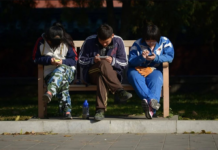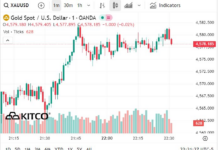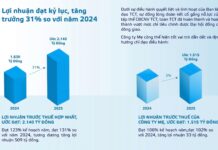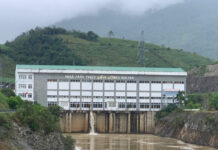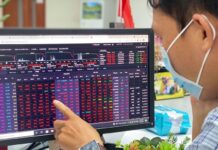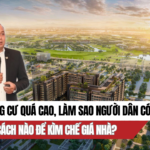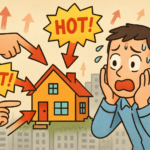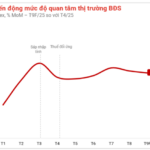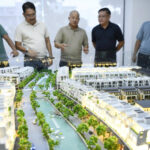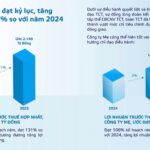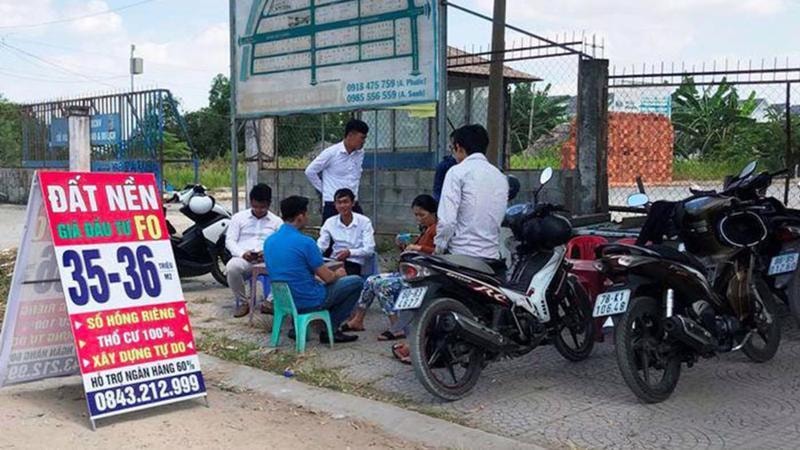
Vietnam’s real estate market is experiencing a surge in bank credit, with VND 4.1 quadrillion injected as of July 31, 2023, marking a 17% growth compared to late 2024. This exceeds the overall credit growth rate of the economy, with real estate loans now accounting for nearly 24% of total outstanding debt—an all-time high.
Financial reports from various banks highlight that credit growth in real estate significantly outpaces the system-wide average, driven by production firms’ limited capital absorption and the legal unblocking of property projects requiring substantial funding.
Extended financial incentives such as “interest-free periods with principal grace” and low down payments (10–30%) have enabled speculators to accumulate properties with minimal investment, generating substantial profits. This has fueled a speculative cycle of “hoarding – scarcity – price hikes,” creating artificial market bubbles and heightened risks.
The Vietnam Real Estate Market Research Institute (VARS IRE) notes that amidst volatile gold investments, real estate and stocks have become primary safe-haven assets. The property market, highly sensitive to monetary cycles, has responded swiftly to declining interest rates, sparking a new investment wave.
VARS IRE warns that speculative groups reap disproportionate profits without bearing equivalent risks, leaving retail investors and genuine homebuyers vulnerable. Despite stagnant asset values and unimproved infrastructure, prices soar due to herd mentality, trapping unsuspecting buyers in speculative spirals.
A market downturn could trigger liquidity crises, forcing sell-offs and price crashes. Leveraged investors may exacerbate systemic risks, particularly if the market freezes—with tightened credit, unsellable properties, and genuine homebuyers bearing the brunt.
Dr. Vo Tri Thanh, Director of the Brand and Competition Strategy Research Institute, emphasizes real estate’s GDP contribution but highlights Vietnam’s underdeveloped financial markets, particularly corporate bonds. Reliance on bank credit for property investments poses macroeconomic risks.
Sustainable real estate growth requires balancing affordable housing needs with market stability, avoiding past bubbles or freezes. Dr. Can Van Luc, BIDV’s Chief Economist, flags the sector’s overheating credit share and advocates diversifying funding sources to mitigate risks.
Luc identifies supply-demand imbalances and unaffordable housing as key issues, noting Vietnamese buyers need 26 years to afford average-priced homes—far exceeding the global 15-year average. Without urgent reforms, homeownership for youth will remain elusive.
He urges regulatory enhancements, speculative activity control, and diversified capital channels to stabilize prices, safeguarding banks, businesses, and citizens alike.
Vietnam Real Estate Market Q4/2025: Recovery and Growth in Ho Chi Minh City’s Outskirts
As we enter Q4 2025, Vietnam’s real estate market is poised for a new growth cycle, fueled by the 2024 Land Law, surging FDI, and synchronized inter-regional infrastructure. From North to South, key indicators such as supply, transactions, and pricing are all signaling optimism, despite lingering challenges.
How to Curb the Rising Prices of Condominiums?
Real estate experts propose innovative solutions to curb rising condo prices, ensuring that middle-income earners can achieve their dream of homeownership.
Multi-Star Solutions: Real Estate Prices Remain Unyielding
Over the past two years, countless discussions have revolved around solutions for the real estate market, pinpointing various causes and proposing numerous measures. Yet, despite these efforts, housing prices remain stubbornly high, leaving many struggling to afford them. What explains this persistent gap between extensive dialogue and tangible results?



